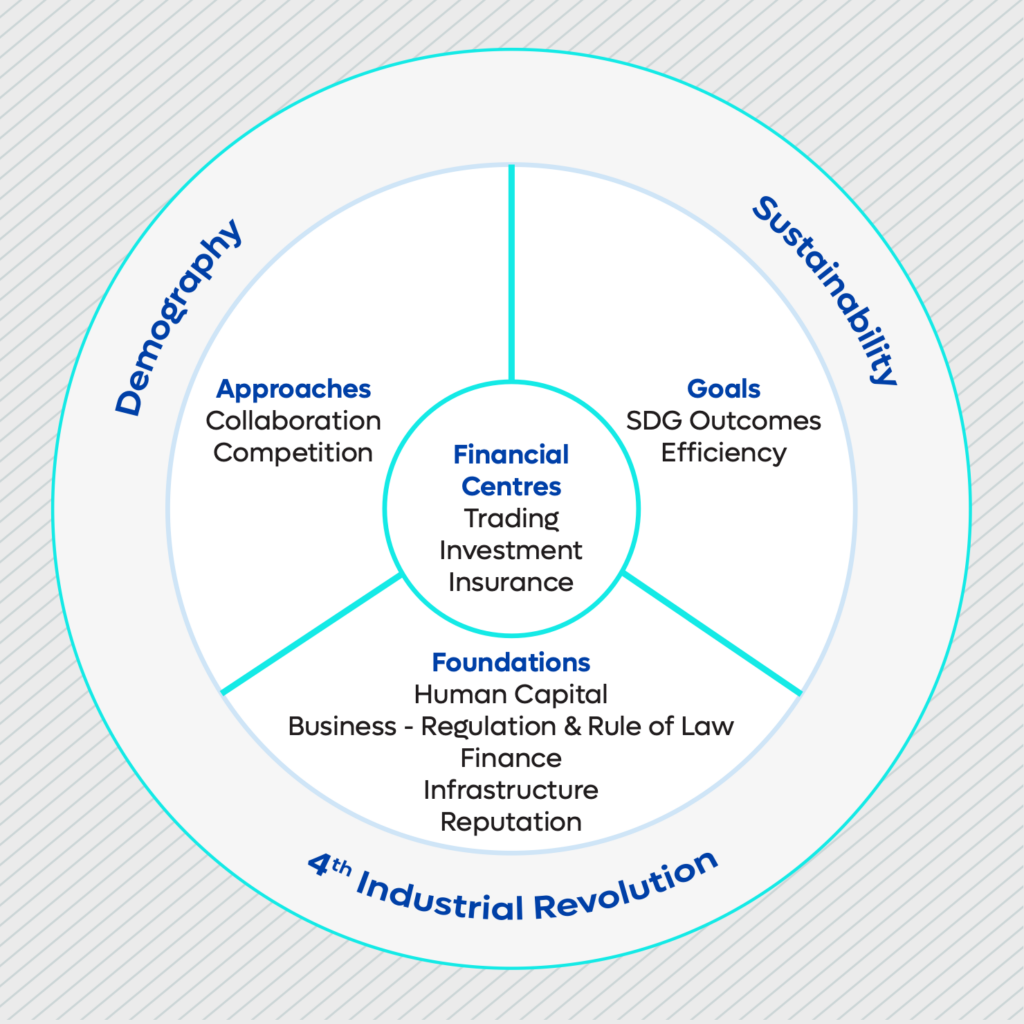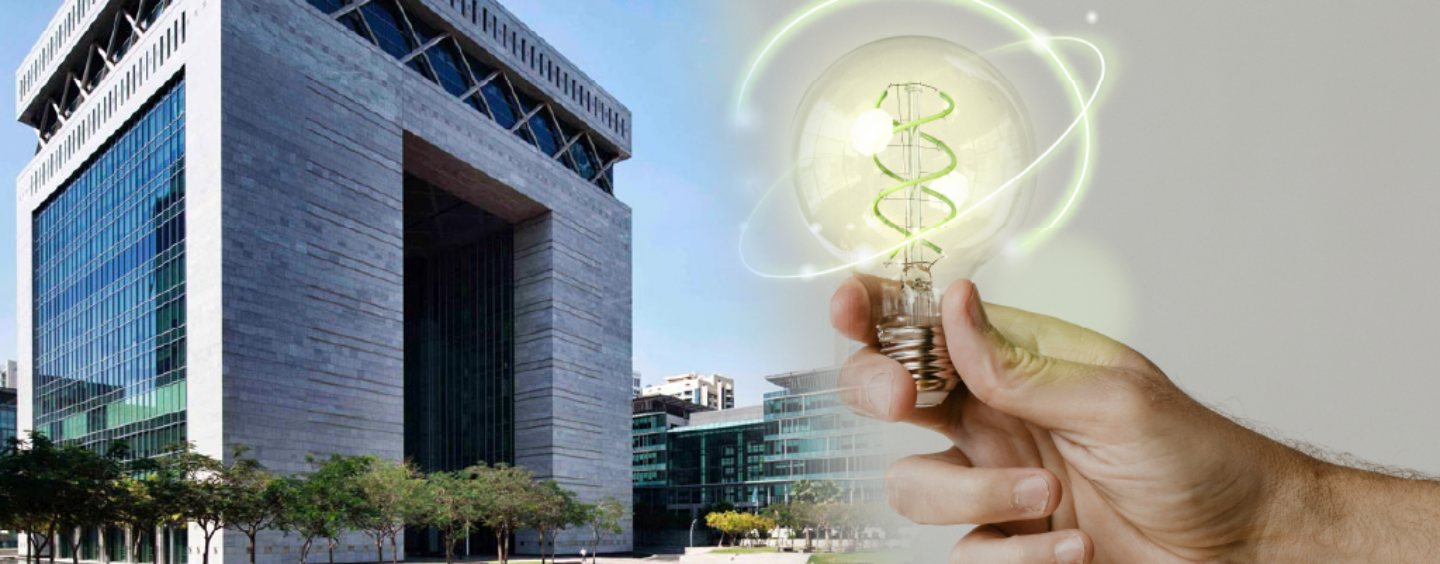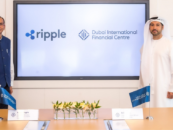Around the world, financial centers and the organizations that represent them are leading efforts to strengthen their countries’ financial markets, business environments and innovation ecosystems to drive economic growth. Today, these clusters and special economic zones are emerging as fintech powerhouses, building on their strong digital ecosystems, deep international relations, and the openness of their business environments.
This is according to a new report, sponsored by the Dubai International Financial Centre (DIFC) and produced by the World Alliance of International Financial Centers (WAIFC) and the Z/Yen Group, which explores how financial centers worldwide are responding to some of the world’s most pressing macroeconomic challenges, highlighting the key role they play in encouraging innovation and productivity.

The Financial Centre Challenge
According to the report, financial centers have been critical in enabling the digital revolution, stirring regulatory change to allow digital finance, providing fintech labs to help startups operate at low-cost, and supporting the development of enabling digital initiatives like digital identity schemes and know-your-customers systems.
Working closely with stakeholders, financial centers have served as a bridge between the industry and regulators, ensuring that regulations in place are promoting innovation, but also that robust systems are present to counter financial fraud and corruption.
Financial centers also play a key role in attracting and developing talent. In DIFC, this has been materialized in the establishment of DIFC Academy, a unit that provides executive education programs developed in partnership with internationally recognized business schools, professional development providers, and other training academies, as well as the recent introduction of a new coding and artificial intelligence (AI) license designed to attract tech companies and builders from around the world.
DIFC: a leading fintech hub in the Middle East
DIFC is a special economic zone in Dubai and a major financial hub in the Middle East, Africa and South Asia (MEASA) that houses a vibrant business ecosystem of over 29,700 professionals working across more than 3,600+ active companies.
Its DIFC Innovation Hub is the region’s leading innovation ecosystem with more than 500 growth-stage tech firms, established innovation companies, digital labs, venture capital (VC) firms, regulators and educational entities. These organizations represent more than 60% of all fintech entities in the Gulf Cooperation Council (GCC), making the location a fintech powerhouse across the region, the report says.
DIFC’s rise to fintech leadership has been enabled by the numerous initiatives introduced by public agencies, regulators and policy makers over the past couple of years, it notes.
The DIFC Fintech Hive accelerator program was launched in 2017 to connect promising startups with key stakeholders and build strategic ties. The accelerator has since grown into the region’s largest fintech program, with more than 160 startups accelerated to data, and over 2,500 startup applications.
The DIFC Innovation Hub also gives access to funding, being home to the Dubai Future District Fund, a VC fund of funds of Dubai launched in 2021 to support tech company.
In addition, several licensing regimes exist to allow young fintech companies to easily set up a presence, operate in a regulated and compliant manner, and test out innovative products.
The DIFC Innovation License, introduced in 2020, targets tech firms, startups and entrepreneurs looking to operate within the financial freezone. The license comes with subsidized commercial licensing options, starting at US$1,500 per year. Businesses also gain access to DIFC co-working space at attractive rates, and are able to secure up to four visas when renting desk space, as well as a 50% subsidy on additional visas.
And the Dubai Financial Services Authority (DFSA) Innovation Testing License (ITL), launched in 2017 by DIFC’s financial services regulator, provides licensed companies with a controlled environment within which they can test and develop their innovative products and services.
DIFC has recently shared its ambition to helping turn Dubai into the leading hub for venture building in MEASA, unveiling plans in April 2022 to launch so-called venture studios across the freezone which will be tasked with building and investing in startups. The financial center aims for more than 20 studios to be set up over the next five years. These are expected to launch over 200 new ventures.
Besides DIFC, Abu Dhabi Global Market (ADGM) is another financial center highlighted in the report. In the fintech domain, ADGM is best known for having introduced RegLab, the first regulatory sandbox in the Middle East and North Africa (MENA) region, back in 2016.
Another groundbreaking initiative by ADGM is the creation of Digital Lab, a digital sandbox and virtual environment for industry participants to access resources such as data, APIs, system images and reference architectures.
On the regulatory front, ADGM introduced one of the world’s first comprehensive virtual asset frameworks back in 2018 for the trade of virtual assets by businesses. Licenses have been issued to companies including SEBA Bank and Kraken.
Featured image credit: edited from Freepik








No Comments so far
Jump into a conversationNo Comments Yet!
You can be the one to start a conversation.